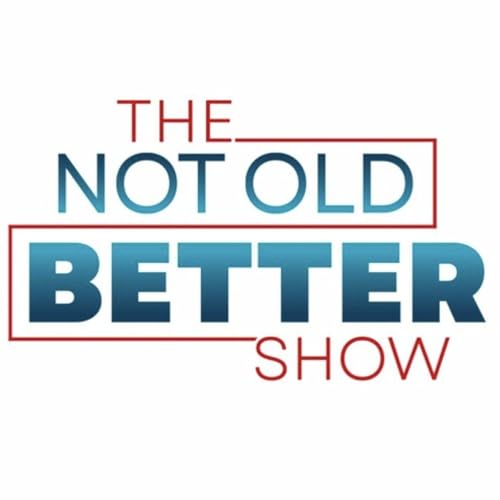🌧️➡️🌤️ Before the Change Came: Sam Cooke, Civil Rights & the Song That Still Waits
The Not Old Better Show, Music Today Interview Series
Thank you. I'm Paul Vogelzang and today's episode is brought to you by Hungryroot. Hungryroot…tailored meals for your taste.
There are voices that entertain us…
and then there are voices that change us.
Today, we're talking about one of the most important voices in American music—and arguably, American history: Sam Cooke.
Most of us know the hits. "You Send Me." "Wonderful World." "Twistin' the Night Away."
And of course, "A Change Is Gonna Come"—a song so powerful it still feels unfinished, because the change it calls for is still unfolding.
But here's the thing: if we only talk about the hits, we miss the man.
We miss the gospel prodigy shaped in church choirs.
The strategist who understood crossover before the industry had a name for it.
The entrepreneur who built his own label to protect artists who looked like him.
The quiet innovator who helped design the very sound that Motown, Stax, and soul music itself would ride to greatness.
Sam Cooke lived fast, worked relentlessly, and died tragically at just 33 years old. His death—controversial, unsettling, and still debated—often overshadows something far more enduring: his intention.
Not just to make beautiful music—but to make music that moved culture forward.
Today, we're going deeper.
Not the obvious songs—but the revealing ones.
The deep cuts that tell the story of where Sam came from… where he was going… and why his influence still surrounds us today—whether we realize it or not.
Music historian Scott Shea joins us to unpack six songs that don't just sound good—they explain Sam Cooke.
This is Music Today.
And this is a story worth listening to closely.
As we close today, it's worth remembering this:
Sam Cooke didn't just sing songs.
He built bridges—between gospel and pop, between Black audiences and white radio, between joy and justice.
Yes, his death remains unsettled.
And yes, the unanswered questions still linger.
But the most important truth is this:
his life was not defined by how it ended—but by what it set in motion.
Every time you hear the ease in his voice…
the hope behind his phrasing…
the confidence of an artist who knew his worth…
You're hearing someone who understood that music could soften hearts and sharpen conscience at the same time.
Sam Cooke showed us that progress doesn't always shout.
Sometimes, it sings.
So if today's conversation sent you back to his catalog—especially the deeper cuts—listen closely. Not just for nostalgia, but for intention. For courage. For the quiet blueprint of soul music as we know it.
Because long after the mystery fades,
the music remains.
And that—ultimately—is the change that came.
I'm Paul Vogelzang.
Thanks for listening to Music Today, brought to you by Hungryroot!
Go to Hungryroot dot com slash NOB and use code NOB.
Until next time, keep listening with curiosity—and heart.
 38 m
38 m Feb 17 202636 m
Feb 17 202636 m 42 m
42 m 32 m
32 m 34 m
34 m 37 m
37 m 37 m
37 m Jan 20 202639 m
Jan 20 202639 m
